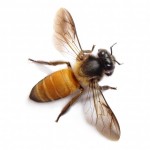It bothers me, to see bees in October. Bees are allowed around for the SUMMER, not mid Autumn. Apparently, I should be appreciating the bees around me. According to an article published Oct 20, WE NEED bees. That is why the University of B.C is are actually working on a way to keep bees alive LONGER! The bee decline is not only a problem in the United States, but it has become a phenomenon across the world. The UK, China, Japan, Egypt, and across Africa and Europe there has been a noticiable decline in the population of bees. Scientists apart of the United Nations Environment Program (UNEP) believe in four main reasons for the bee decline:
- Habitat degradation, including the loss of flowering plant species that provide food for bees;
- Some insecticides, including the so-called “systemic” insecticides which can migrate to the entire plant as it grows and be taken in by bees in nectar and pollen;
- Parasites and pests, such as the well-known Varroa mite;
- Air pollution, which may be interfering with the ability of bees to find flowering plants and thus food – scents that could travel more than 800 meters in the 1800s now reach less than 200 meters from a plant.
Research at The University of B.C. has shown that by Beekeepers keeping a clean hive, bees will have a higher life expectancy. Considering the fact Bees declined 30% in population from 2010-2011, it is important for humans to help keep these insects alive. Bees help pollinate many plants. Out of 100 crop species that provide 90 per cent of the world’s food, over 70 are pollinated by bees. Their declining number, could be drastic to the circle of life. According to University of B.C.’s Leonard Foster, Beekeepers who keep a clean hive, not only have bees with a higher life expectancy, but also build a strong resitence to virures, pesticides, bacteria, and fungi. Foster has already been granted 1.5 million dollars to fund his project, on 4.2 million more to fulfill his full need of 5.7 million. I never knew bees were worth so much money, but you better bee-lieve it, honey. Sources: http://www.commondreams.org/headline/2011/03/10-0 http://www.theprovince.com/news/Buzzworthy+research+create+tougher+bees/5583148/story.html



biologiamaster
The decline of the bee population seems like it would have noticeable effect on our food supply if they’re pollination does indeed support 30% of US food consumption.
It would also be a blow to those herbalists and health-seekers who utilize raw bee pollen for its natural, anti-bacterial, anti-viral and anti fungal qualities. Researchers at Penn State College even found in a partially blind trial that honey provided better cough relieve than the typical cough suppressant (dextromethorpan or DM) without the harmful side effects of DM.
Reference-
http://www.whfoods.com/genpage.php?tname=foodspice&dbid=96
buddhabear28
I think its interesting that a lot is being done to revive the bee population, but I wonder, why are bees so important and why has their population decline been so detrimental across the world? The answer is in pollination, a process in which bees transfer pollen in plants, which leads to fertilization and plant reproduction. This pollination (http://news.nationalgeographic.com/news/2004/10/1005_041005_honeybees.html) is responsible for up to 30% of what we eat. Thus, if we don’t save the bees, we can’t eat!